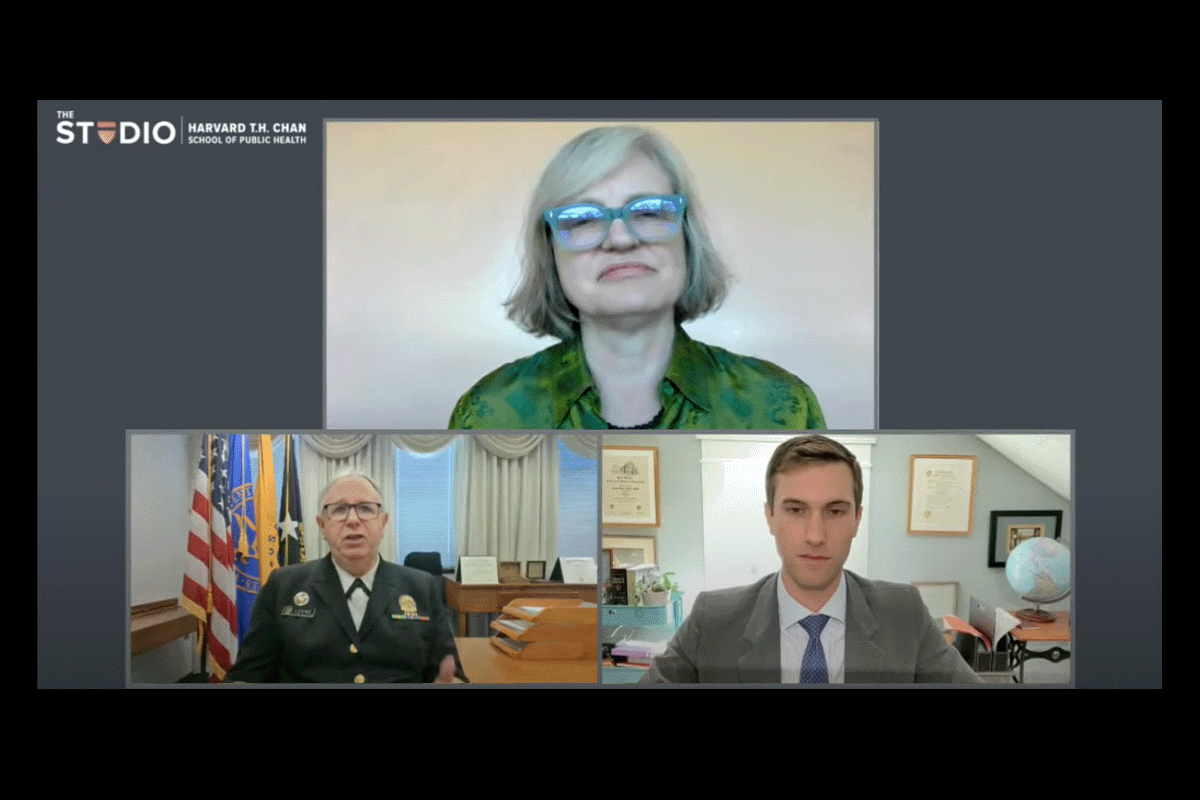Canadian Experts Issue First-Ever Long COVID Guidelines

Table of Contents
The significance of these new guidelines cannot be overstated. They promise to improve diagnosis, streamline treatment approaches, and enhance support systems for individuals suffering from Long COVID across Canada. By providing a consistent approach to care, these guidelines aim to ensure that those affected receive the best possible medical attention and support. Key areas covered include comprehensive diagnostic criteria, effective treatment strategies, and access to vital rehabilitation and support resources.
Key Features of the New Canadian Long COVID Guidelines
These new Canadian Long COVID guidelines are comprehensive, addressing various aspects of the condition's impact. They move beyond simply listing symptoms to offer a structured approach to care, emphasizing patient-centered care and shared decision-making between healthcare providers and individuals. The guidelines aim to create a consistent standard of care across the country, regardless of geographic location or healthcare provider.
- Diagnostic Criteria: The guidelines provide clear criteria for diagnosing Long COVID, considering symptom duration, severity, and exclusion of other potential conditions.
- Multidisciplinary Care: A strong emphasis is placed on the importance of a multidisciplinary approach, involving specialists from various fields like pulmonology, cardiology, neurology, and rehabilitation medicine.
- Symptom Management: Specific strategies for managing common Long COVID symptoms are outlined, including fatigue management techniques, cognitive rehabilitation for brain fog, and breathing exercises for shortness of breath.
- Patient-Centered Approach: The guidelines strongly advocate for shared decision-making, ensuring that treatment plans are tailored to individual needs and preferences.
- Healthcare Provider Recommendations: The guidelines offer explicit recommendations for healthcare providers on how to approach diagnosis, assess severity, and develop personalized treatment plans.
Diagnosis and Assessment of Long COVID in Canada
Accurate and consistent diagnosis is crucial for effective Long COVID management. The Canadian Long COVID guidelines provide detailed diagnostic criteria to improve the consistency of diagnosis across the country.
- Symptoms Considered: The guidelines specify a range of symptoms considered indicative of Long COVID, including persistent fatigue, cognitive dysfunction (brain fog), shortness of breath, chest pain, palpitations, and sleep disturbances.
- Symptom Duration: A minimum duration of symptoms is stipulated, usually defined as lasting beyond a certain timeframe after the initial COVID-19 infection.
- Exclusion Criteria: The guidelines outline specific conditions that need to be ruled out before a diagnosis of Long COVID can be confirmed, ensuring accuracy in diagnosis.
- Diagnostic Tests: While there's no single definitive test for Long COVID, the guidelines suggest specific diagnostic tests that can help assess the impact on different organ systems and rule out other possibilities. This includes blood tests, imaging studies (like chest X-rays or echocardiograms), and pulmonary function tests.
- National Consistency: These guidelines aim to standardize diagnostic procedures across Canada, reducing regional variations in diagnosis and improving overall care.
Treatment and Management Strategies for Long COVID
The guidelines offer a range of evidence-based treatment and management strategies for Long COVID, focusing on a multifaceted approach.
- Pharmacological Interventions: The guidelines address the potential role of certain medications in managing specific symptoms like pain, fatigue, or cognitive impairment, always emphasizing individualized treatment plans and careful consideration of potential side effects.
- Non-Pharmacological Therapies: A significant emphasis is placed on non-pharmacological therapies, including physiotherapy for muscle weakness, occupational therapy for daily living activities, and cognitive behavioral therapy for mental health challenges. Rehabilitation programs are strongly recommended.
- Multidisciplinary Approach: The guidelines highlight the critical importance of a multidisciplinary team approach to care, bringing together specialists to address the various symptoms and needs of individuals with Long COVID.
- Specific Therapies: The guidelines may mention specific medications or therapies that have shown promise in clinical trials, though they stress the need for further research to confirm their efficacy.
- Research Gaps: The guidelines acknowledge existing research gaps and highlight areas requiring further investigation, such as long-term outcomes and the effectiveness of various treatments.
Support and Resources for Canadians with Long COVID
The Canadian Long COVID guidelines emphasize the importance of comprehensive support and resources for individuals affected by this condition.
- Rehabilitation Services: Access to various rehabilitation services, including physiotherapy, occupational therapy, and speech therapy, is strongly recommended.
- Mental Health Support: Recognizing the mental health challenges often associated with Long COVID, the guidelines advocate for access to mental health professionals and support groups.
- Financial Assistance: The guidelines acknowledge the potential financial burden of Long COVID and encourage exploring available financial assistance programs.
- Government Initiatives: Links to relevant government initiatives and programs designed to assist individuals with Long COVID are provided.
- Patient Advocacy Groups: The guidelines emphasize the crucial role of patient advocacy groups and support networks in providing information, emotional support, and advocacy for improved care. For example, links to organizations like [insert relevant Canadian organization links here] will be provided.
Future Directions and Research Needs in Long COVID
The Canadian Long COVID guidelines are not static; they represent a starting point for ongoing research and improvement.
- Ongoing Research: The guidelines highlight various research initiatives underway in Canada to further understand the long-term effects of Long COVID, develop more effective treatments, and identify preventative strategies.
- Areas Requiring Further Research: Key areas needing further research include understanding long-term outcomes, developing more effective preventative strategies, evaluating the long-term efficacy of various treatment approaches, and identifying biomarkers for earlier diagnosis.
- Future Guideline Updates: The guidelines acknowledge the need for periodic updates as new research emerges and a greater understanding of Long COVID develops.
- Collaboration: The guidelines emphasize the importance of continued collaboration between researchers, healthcare providers, policymakers, and individuals with Long COVID to improve diagnosis, treatment, and support.
Conclusion: Understanding and Addressing Long COVID in Canada
The release of the first-ever Canadian Long COVID guidelines marks a pivotal moment in addressing this complex condition. These guidelines provide a much-needed framework for improving the diagnosis, treatment, and support available to Canadians experiencing the lingering effects of COVID-19. The emphasis on a multidisciplinary approach, patient-centered care, and ongoing research is crucial for effectively managing this condition.
We urge you to learn more about these important Long COVID guidelines and available Long COVID resources in Canada. Share this information with others who may be affected by Long COVID and encourage them to seek appropriate medical attention if they are experiencing persistent symptoms. For reliable Canadian Long COVID support and information on effective Long COVID management, consult the resources linked within this article and reach out to your healthcare provider.

Featured Posts
-
 Las Atajadas Sorprendentes De Mamardashvili Que Decidieron El Partido
May 29, 2025
Las Atajadas Sorprendentes De Mamardashvili Que Decidieron El Partido
May 29, 2025 -
 Marvel Confirms Stranger Things Reunion In Avengers Doomsday
May 29, 2025
Marvel Confirms Stranger Things Reunion In Avengers Doomsday
May 29, 2025 -
 How The Nintendo Switch Changed The Gaming Landscape
May 29, 2025
How The Nintendo Switch Changed The Gaming Landscape
May 29, 2025 -
 Review Of The Best Office Chairs Available In 2025
May 29, 2025
Review Of The Best Office Chairs Available In 2025
May 29, 2025 -
 Mena Lw Ansf Alqwmu Fy Syaq Dhkra Alastqlal
May 29, 2025
Mena Lw Ansf Alqwmu Fy Syaq Dhkra Alastqlal
May 29, 2025
